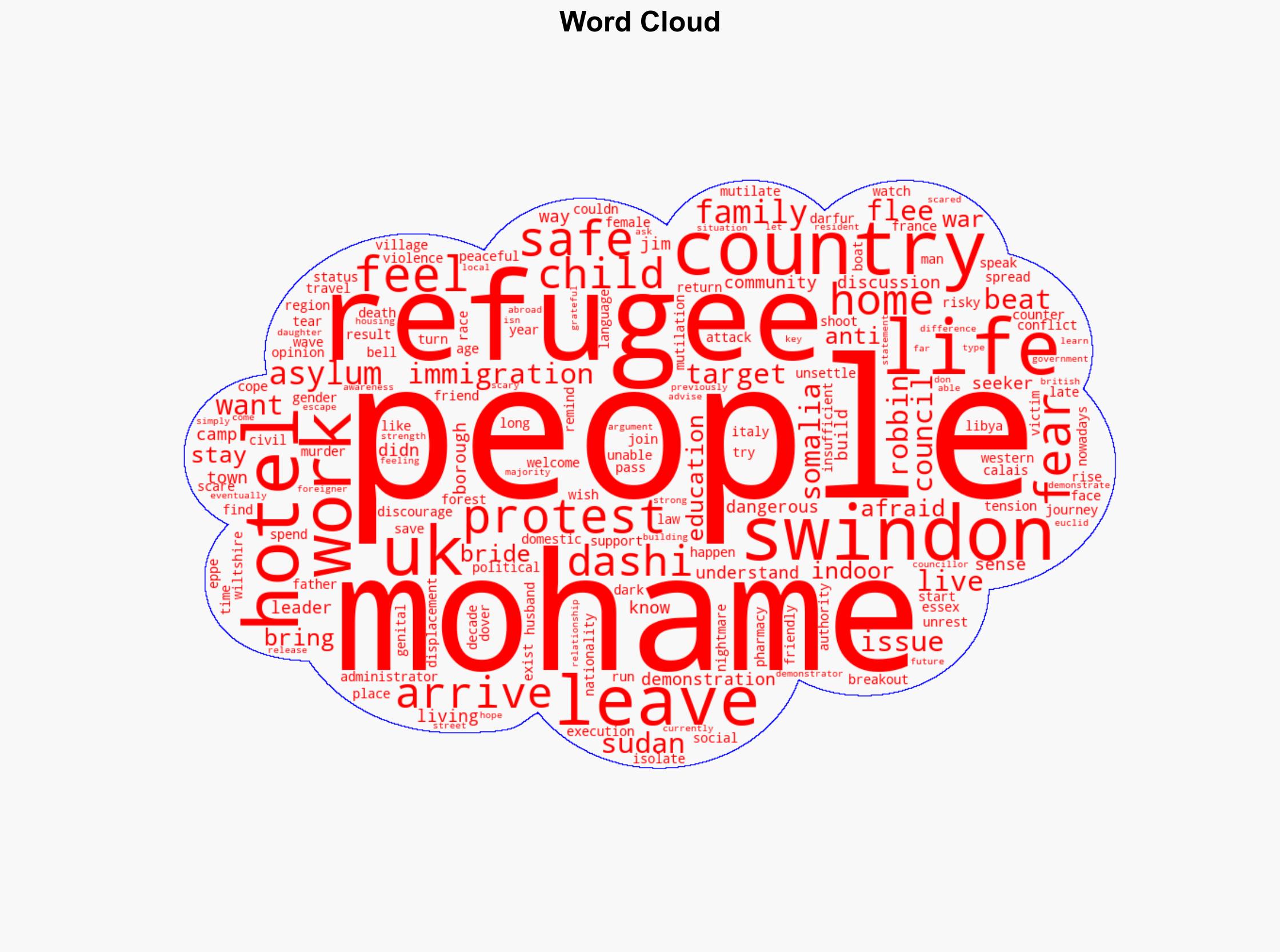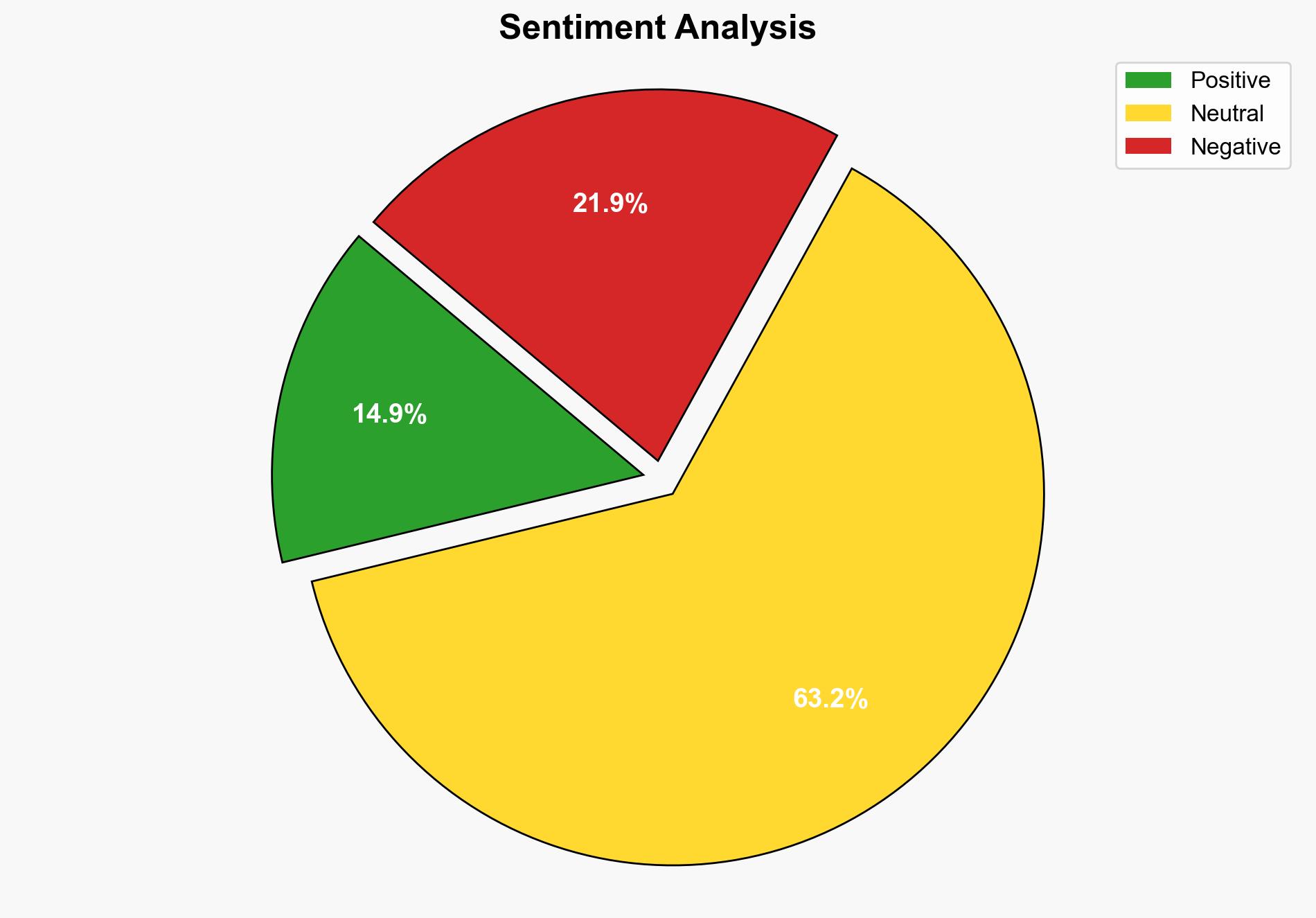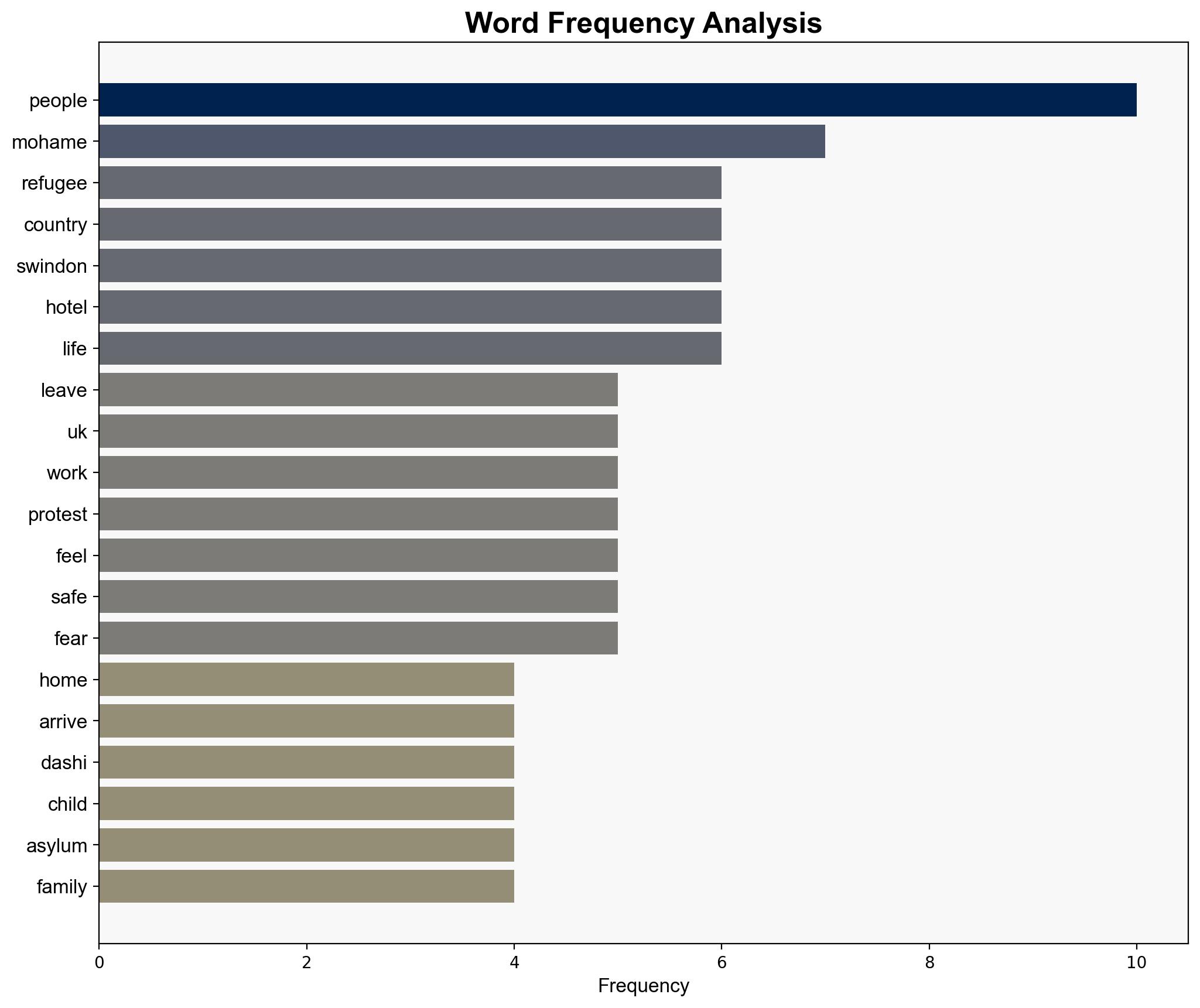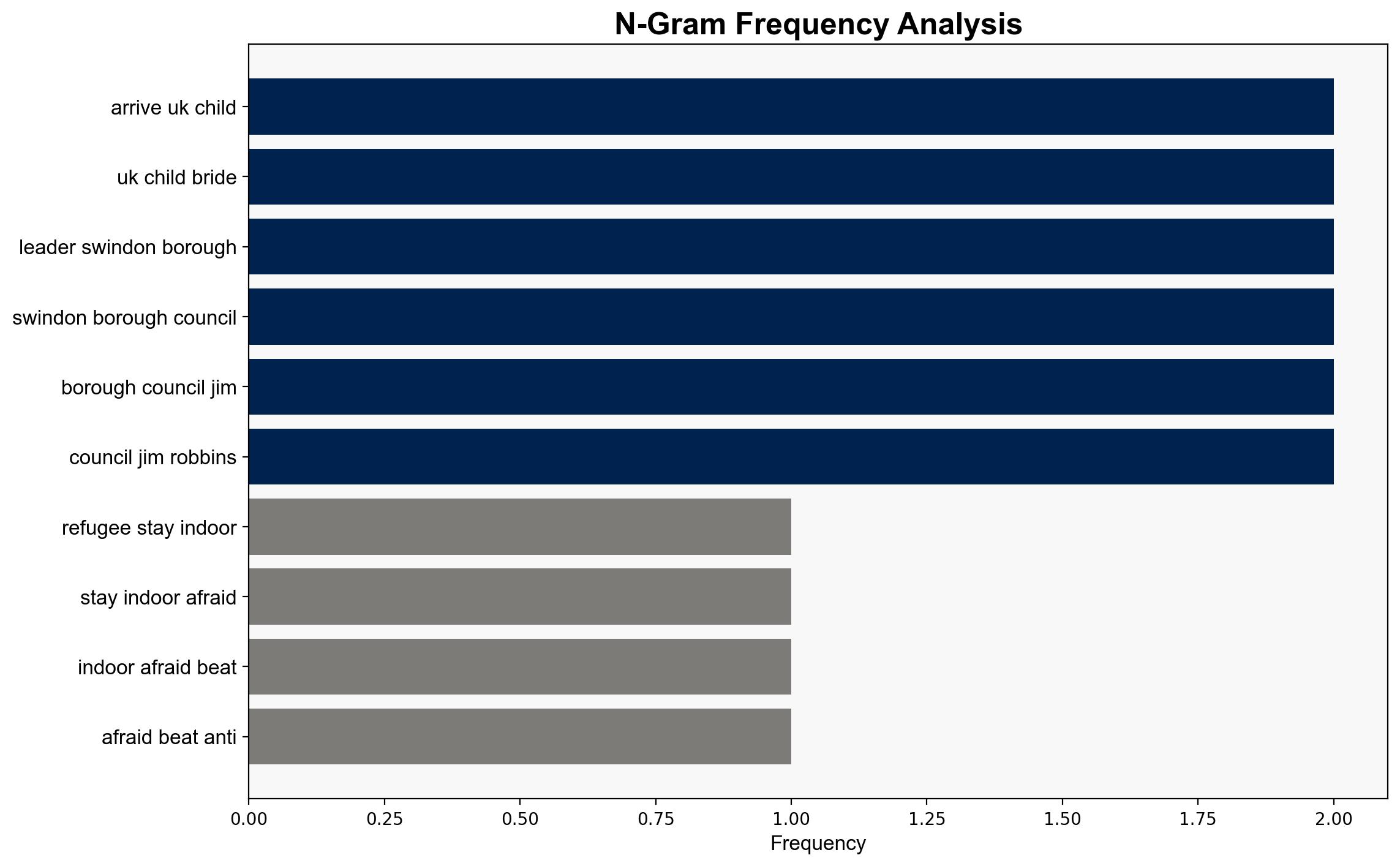Refugees staying indoors afraid of being beaten – BBC News
Published on: 2025-08-29
Intelligence Report: Refugees staying indoors afraid of being beaten – BBC News
1. BLUF (Bottom Line Up Front)
The most supported hypothesis is that rising anti-immigration sentiment and protests in the UK are creating a climate of fear among refugees, leading them to remain indoors. This situation poses a risk of social unrest and requires strategic intervention to prevent escalation. Confidence level: Moderate. Recommended action: Initiate community engagement programs and enhance security measures to protect vulnerable populations.
2. Competing Hypotheses
1. **Hypothesis A**: The increase in anti-immigration protests is primarily driven by local economic concerns and misinformation, resulting in heightened fear among refugees.
2. **Hypothesis B**: The protests are orchestrated by organized groups with a political agenda to influence immigration policy, exacerbating tensions and fear among refugees.
Using ACH 2.0, Hypothesis A is better supported due to the presence of economic grievances and misinformation being common drivers for such protests. Hypothesis B lacks direct evidence of organized orchestration.
3. Key Assumptions and Red Flags
– **Assumptions**: It is assumed that economic concerns are the primary motivator for protests. It is also assumed that refugees are uniformly affected by these protests.
– **Red Flags**: Lack of direct evidence linking organized groups to the protests. Potential cognitive bias in assuming economic factors are the sole motivator.
– **Inconsistent Data**: Limited information on the specific demographics of protestors and their motivations.
4. Implications and Strategic Risks
– **Social Unrest**: Continued protests could lead to increased violence and social division.
– **Economic Impact**: Negative perceptions of refugees may affect local economies reliant on immigrant labor.
– **Geopolitical Risks**: Potential for international criticism and diplomatic tensions if refugee safety is compromised.
– **Psychological Impact**: Prolonged fear among refugees could lead to mental health crises and hinder integration efforts.
5. Recommendations and Outlook
- Implement community dialogue initiatives to address misinformation and economic concerns.
- Enhance security around refugee accommodations to prevent violence.
- Best Case: Successful community engagement reduces tensions.
- Worst Case: Escalation of violence leads to severe social unrest.
- Most Likely: Continued protests with sporadic incidents of violence.
6. Key Individuals and Entities
– Mohame: Refugee from Sudan, experiencing fear due to protests.
– Dashi: Refugee from Somalia, advocating for education and community integration.
– Jim Robbins: Swindon Borough Council representative, advocating for peaceful discussion.
7. Thematic Tags
national security threats, social unrest, immigration policy, community engagement





